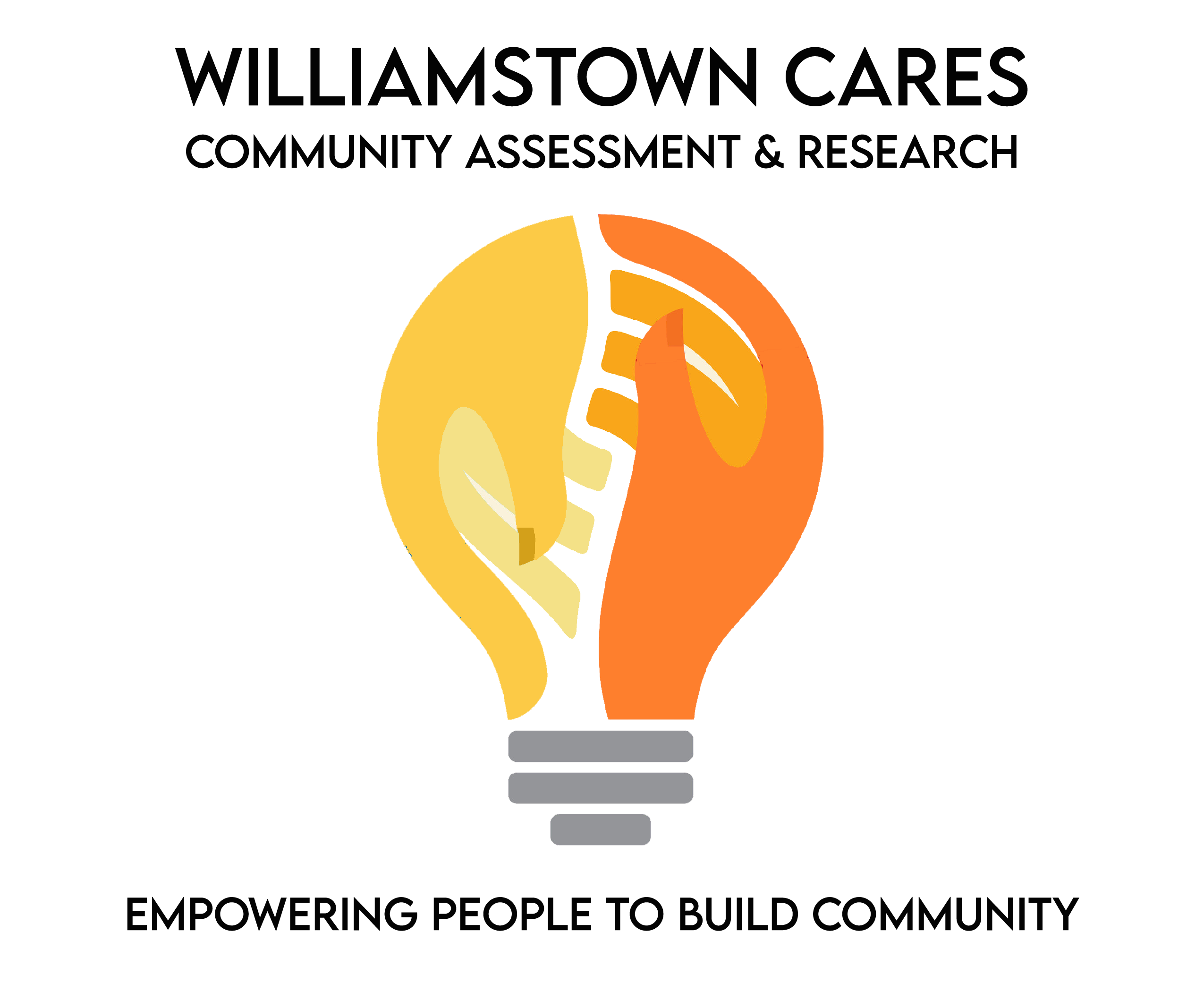Williamstown has embarked on a research project to better understand safety and wellbeing in Williamstown, and we need your help! This research explores how the town addresses public safety needs now, how residents feel about their own safety, and how we can create a greater sense of well-being and belonging.

faq
This community assessment uses a community-based participatory research framework and a qualitative research design
to bring together the expertise of the community—empowering citizens to define problems and explore solutions for
themselves – with the expertise of skilled researchers who can draw on existing bodies of research and devise ways of
measuring outcomes to help ensure that new programs or policies work to meet community goals.
In addition to interviews with community members, researchers will interview police officers and review police statistics
and policies to evaluate the extent to which the scope and nature of policing in Williamstown aligns with the
community’s public safety needs and goals.
Finally, a community working group will explore program innovations in neighboring communities and those that stand out nationally to help inform ideas for program and policy changes in Williamstown.
The study design, including confidentiality procedures and methodology, has been approved by the institutional review
board (IRB) at the Massachusetts College of Liberal Arts, which means that a research ethics committee has ensured that
this study meets all relevant research standards. The study is supported with funding from the Town of Williamstown.
The main goal of the interviews is to understand how community members think about safety and wellbeing (their own and that of others) in Williamstown. We know that these are complex and nuanced issues and that different community members will have different perceptions based on their own experiences in town. Because of this, researchers will conduct in-depth interviews with community members that will provide a richer and more accurate perspective on community needs than a survey involving questions with predetermined sets of answers.
A professionally educated social worker who has been trained in conducting research interviews will conduct your interview. There are currently seven social workers connected with this project, one of whom will contact you to schedule your interview. For more information about members of the research team, please visit https://williamstownma.gov/community-research/who/.
The recording, which is not associated with anyone’s contact information, will be transcribed and uploaded into NVIVO, a software tool that will help researchers perform thematic and content analysis within a single transcript and common themes arising across transcripts as part of the data analysis process. Recording and transcribing the interviews will allow researchers to capture the depth and complexity of community members’ perceptions in their own words.
1. These interviews have to be scheduled individually, so we need contact details to make those arrangements.
2. Researchers need to make sure those scheduling interviews are Williamstown residents.
3. Researchers must obtain consent from every research participant, which necessitates the use of names.
4. Birth dates are required so that researchers know to seek parental permission from anyone under 18.
After the community assessment, police assessment, and policy and program assessment of other communities have been completed, the research director will write a thorough report including the following:
- Background of the study
- Literature review of relevant evidence-based research
- Description of methodology
- Results of data analysis
- Recommendations for policy and program changes including outcome measures to ensure efficacy
- Discussion and conclusion
This report will be shared with the community through multiple venues, including the town website as well as presentations to town officials and community members.
After that, the research director’s role will shift to identifying potential funding streams to help minimize the budgetary impact of implementing new programs. She will apply for local and federal grants and seek to publish the study in a peer-reviewed journal given the burgeoning importance of this type of research as communities face similar challenges all over the country.



